detail profile ping fan
Peran Yang Di Mainkan Ping Fan
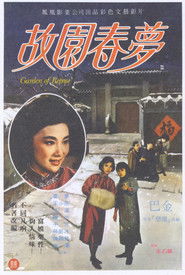 Yang Mengchi is a spoiled rich...
Yang Mengchi is a spoiled rich...Garden of Repose 1964
Yang Mengchi is a spoiled, rich do-nothing whose habit of smoking opium has cost him his entire fortune and the family mansion, the Garden of Repose, now due to be sold to Yao Guodong. Fearing that Yao's spoiled and unruly son Siaofu will follow in Yang's footsteps, Yao's stepwife Wan Zhaohua tries to instil discipline in the child but her efforts are undermined by the child's indulging and protective father and grandmother. Unable to reform himself despite his own son's chastisement, Yang leaves home to lead a reclusive life in a destitute temple, only helped out by his filial daughter Han'er. The poverty-stricken Yang is drafted into the army and tragedy ensues.
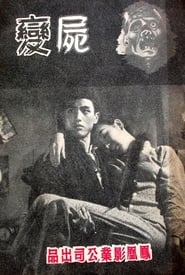 Famed director Zhu Shilin tries his...
Famed director Zhu Shilin tries his...The Living Corpse 1958
Famed director Zhu Shilin tries his hand at a horror film! The beginning of The Living Corpse immediately sets the tone with a folk duet clearly inspired by the popular 1956 musical Songs of the Peach Blossom River. The duet, in addition to Zhu's frequent use of long, empty shots and crisp editing, gives this horror film a traditional poetic charm and a strong folk flavor. Mise-en-scene and sound effects create a terrifying atmosphere, and successfully communicate the ghostliness of a world without ghosts.
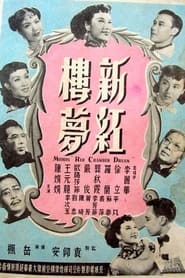 Dream of the Red Chamber one...
Dream of the Red Chamber one...Modern ‘Red Chamber Dream’ 1952
Dream of the Red Chamber, one of the big four of classic Chinese novels, has been adapted for film and television dozens of times over the past decades. Yet this sui generis Great Wall production daringly transposes the setting to modern-day 1950s. The contemporised story revolves nonetheless around the love triangle between Jia Baoyu and his two cousins. Both girls love him but his heart belongs to only one. The ending, however, is remarkably changed to separation of the lovers as a result of war—the war that was surely still haunting the minds of the filmmakers at the time when the film was made. Not only did Great Wall pour money into building extravagant sets just so to recreate down to the smallest detail the grandeur of the legendary Jia mansion, but the film also boasted of its lavish costume designs for the diverse female cast. (From Hong Kong Film Archive)
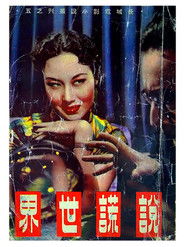 As China falls into hyperinflation following...
As China falls into hyperinflation following...Awful Truth 1950
As China falls into hyperinflation following the end of the war, people fought tooth and nail to get their hands on the only reliable currencies in the world: gold and American dollars. This is a story that shows how seven bars and two thousand US dollars bring together an interesting mix of characters: an opportunistic manager, a materialistic courtesan, a con artist posing as a commissioner of the Treasury, a white-collar worker who will do anything for a promotion, a man who specialises in conning women, a father who marries off his daughter for money and a sorcerer who fakes his magic. In this dog-eat-dog world, the only truth is that everyone is lying for his own gain. Playing the courtesan who longs to be part of high society, Li Lihua steals the film with a feisty performance opposite the amusing Yan Jun, whose con artist character has a tendency to flirt with lyrics from Peking operas.
 Starring in numerous singing films Zhou...
Starring in numerous singing films Zhou...Song of a Songstress 1948
Starring in numerous singing films, Zhou Xuan was one of the most beloved singers in both cinema and recording industries for her 'golden voice'. Popular nightclub singer Zhu Lan (Zhou) is originally in love with impoverished painter Fang Zhiwei (Gu Yelu), but is taken advantage of by rich playboy Ye Chunhua (Wang Hao) at her most vulnerable time. To add to her misfortune, Zhu discovers her being an adoptee. She also learns the heartbreaking truth about her birth parents which intertwines with her own life across generations. Eventually, irreversible tragedy awaits with revenge exacted for past wrongs. In a case of art imitating life, the songstress's life and upbringing resemble Zhou Xuan's own, making the film even more heart-wrenching. The 'Song Fairy' Chen Gexin composed the film's entire music with six songs sung by Zhou. 'Song of a Songstress', sung towards the end of the film, adds poignancy to the film with its discourse on the joy and sorrow in life.
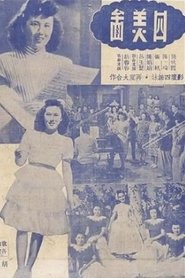 Four sisters each with their different...
Four sisters each with their different...Portrait of Four Beauties 1947
Four sisters, each with their different characters, embark on their separate roads to romance. Elder sister has vast experience of romance; second sister is predisposed to vampiness and wantonness; third sister is righteous and of noble character; fourth sister is just reaching puberty and experiencing the pangs of first love. Being sentimental, flirtatious and amorous, the four sisters form a backdrop conducive to songs and tripping the light fantastic.

 Adapted from the novel Fei Feng...
Adapted from the novel Fei Feng...
 Martial arts movie
Martial arts movie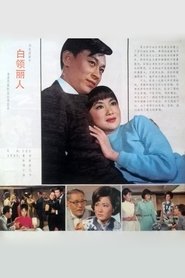 Love stories of three different female...
Love stories of three different female... HK horror film
HK horror film A diamond flower from the rich...
A diamond flower from the rich...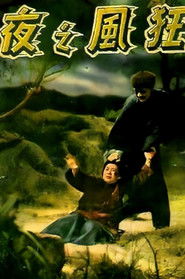 HK drama film
HK drama film An early Musical by the Hsin...
An early Musical by the Hsin... A Charlie Chan mystery from Hong...
A Charlie Chan mystery from Hong...